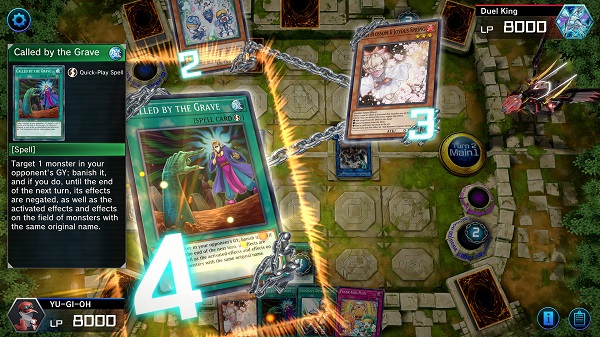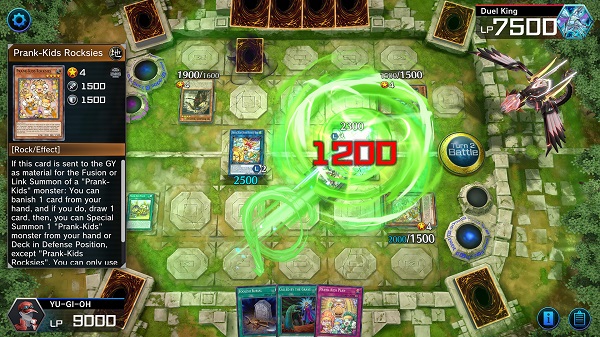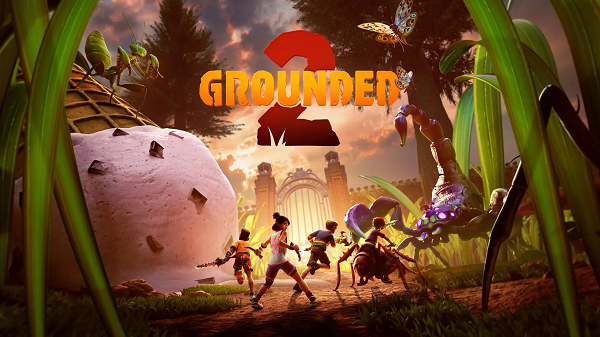Advertisement
Popular Now
Yu-Gi-Oh! Master Duel, Konami’s free-to-play digital adaptation of the iconic trading card game, has captivated millions with its faithful recreation of the Yu-Gi-Oh! experience, stunning visuals, and cross-platform accessibility. Launched in January 2022, the game offers a robust platform for competitive duels, solo modes, and a vast card pool exceeding 10,000 cards. However, one persistent issue has frustrated players since its release: the excessively long turn timer in ranked matches. With a base timer of 480 seconds (8 minutes) per turn, recoverable by up to 240 seconds, duels can drag on, especially against complex decks. This article explores the turn timer issue in depth, tracing its impact through 2024 and 2025, community reactions, developer responses, and potential solutions, highlighting how it affects gameplay pacing and player engagement.


The Launch of Master Duel and Initial Timer Complaints
A New Era for Yu-Gi-Oh!
When Yu-Gi-Oh! Master Duel launched on January 18, 2022, it was praised for its accessibility and polished presentation. The game’s turn-based mechanics, rooted in the physical card game, allowed players to execute complex combos involving multiple summons and effects. However, the generous 480-second turn timer, designed to accommodate new and returning players learning modern mechanics like Link and Pendulum summons, quickly drew criticism for slowing down matches.Early Community Feedback
Players on platforms like Reddit and Twitter (now X) voiced frustration over the lengthy turns, particularly in ranked matches. A Reddit post from January 21, 2022, highlighted the issue: “Turn Timer 480 seconds (8 minutes) and recover 240 seconds every turn for the ranked is an ABSURD!”. Long turns were especially problematic when facing meta decks like Drytron or Sky Striker, which involve intricate chains of summons and effects, often leaving opponents waiting for minutes with no interaction.Why the Timer Felt Excessive
The timer’s design catered to the game’s complexity, where a single turn could involve summoning multiple monsters, activating effects, and responding to opponent counters. However, this generosity backfired, as skilled players could exploit the timer to stall or overthink simple moves, turning duels into tedious waiting games. This was particularly evident in early 2022, when the meta was dominated by combo-heavy decks that maximized turn length.The Meta’s Role in Exacerbating Timer Issues

Combo Decks and Turn Length
By mid-2022, the game’s meta, featuring decks like Zoodiac and Lyrilusc, amplified the timer problem. These decks could summon multiple monsters in a single turn, with each action extending the timer by small increments. A Reddit user lamented, “Sad to say this but I had to surrender a gold rank duel just because I had to leave after watching him summon cards for 10 minutes it felt like”. The lack of a stricter timer encouraged players to take their time, even when outcomes were clear.Comparison to Duel Links
Players compared Master Duel to Yu-Gi-Oh! Duel Links, which uses a 180-second base timer with 20-second recovery, resulting in faster-paced matches. Duel Links’ shorter timer forces quicker decisions, maintaining engagement even in complex scenarios. In contrast, Master Duel’s longer timer felt unnecessary for experienced players, who often completed turns in under a minute, while enabling stalling tactics by others.Community Backlash and Early 2022 Reactions
Social Media Outcry
Posts on X in 2022, such as one from @TeamAPS, highlighted the timer as part of broader issues, giving the game a 7.5/10 and noting “rough edges” like server issues and slow pacing. Players felt that the timer made watching streams or tournaments boring, as matches could last over 30 minutes due to prolonged turns. This sentiment was echoed across forums, with players calling for a reduced timer to enhance the game’s flow.Impact on Content Creators
The long timer also affected content creators. Streamers struggled to maintain viewer engagement when opponents took full advantage of the 480 seconds. A Reddit thread noted, “This is why the game already falls a lot in twitch, it is just absurdly boring to watch a game from MD right now because of how much wait is needed”. The timer’s impact on spectating underscored the need for a faster-paced format to sustain the game’s esports potential.Konami’s First Response: Version 1.7.1 Update
Quality-of-Life Improvements
In November 2023, Konami released version 1.7.1, focusing on quality-of-life (QoL) updates like improved card list displays and duel log enhancements. While these changes improved visibility of game states, they did not address the turn timer. Players hoped for timer adjustments, but Konami’s patch notes emphasized other features, such as Traditional Chinese language support and new animations, leaving the timer unchanged.Community Disappointment
The lack of timer adjustments in 2023 updates fueled frustration. Players on Reddit argued that Konami was prioritizing cosmetic and content updates, like new Selection Packs, over core gameplay issues. The absence of timer changes suggested that Konami viewed the 480-second timer as adequate, despite growing community consensus that it hindered competitive play.The 2024 Meta and Persistent Timer Problems
New Archetypes, Same Issues
Throughout 2024, new archetypes like Tenpai Dragon and Goblin Bikers were introduced, further complicating the timer issue. These decks, with their fast summon chains, could still consume significant time due to effect activations and player deliberation. The October 2024 update, which added a “Boost Generate” function for card crafting, again ignored the timer, focusing instead on UI and cosmetic enhancements.Player Workarounds
Frustrated players developed workarounds, such as surrendering early against stalling opponents to save time. A Reddit user noted, “I wish you at least still got points towards the pass if you surrender in ranked. No point in sitting there for 8 mins as your opponent builds a board you have no possible out to”. These workarounds highlighted the community’s desperation for a solution that Konami had yet to provide.The Role of Hand Traps in Timer Delays
Hand Traps and Interaction Overload
By 2025, hand traps like Ash Blossom & Joyous Spring became central to the meta, adding another layer to the timer issue. These cards, which can be activated during an opponent’s turn, require players to pause and consider responses, further extending turn times. A post on X from @Gamestrom4 complained, “Y’all need to do something about the nonsensical amount of hand traps in both the TCG and Masterduel. It’s killing deck building creativity”.Balancing Interaction and Pacing
While hand traps add strategic depth, they contribute to longer turns by forcing both players to deliberate over chains. Unlike Duel Links, where a shorter timer limits such interactions, Master Duel’s generous timer allows players to exhaustively analyze each move, slowing down matches. This balance between strategic depth and pacing remains a challenge for Konami.Konami’s 2025 Updates: Incremental Progress
Version 2.3.0 and Beyond
The May 2025 update (version 2.3.0) introduced new UI features and event types like Tryout Duels: Time Travel 2008, but still no timer adjustments. Players appreciated the new content, such as the Perpetual Maze Selection Pack, but continued to criticize the timer. A June 2025 X post by @ErikDavisforNC1 suggested cutting the timer in half or letting it run during animations to reduce wait times.Maintenance and Server Focus
Konami’s October 2024 and May 2025 maintenance updates focused on server stability and latency, removing duel room data to improve performance. While these changes addressed connectivity issues, they sidestepped the timer problem, suggesting that Konami prioritized technical stability over gameplay pacing. Players felt that server improvements, while necessary, did not tackle the core issue of lengthy turns.Community Suggestions and Modding Efforts
Player-Proposed Solutions
The community proposed several timer adjustments, including:- Reducing the base timer to 300 seconds with 60-second recovery, similar to Duel Links.
- Implementing a chess-style clock where the total match time is capped.
- Allowing the timer to run during animations, as suggested on X.
- Introducing a “quick play” mode with a shorter timer for casual matches. These suggestions aimed to balance the needs of new players with the demand for faster-paced competitive play.
Unofficial Mods
Some players turned to unofficial mods, like those on GitHub’s YgoMaster project, to experiment with offline versions of the game and test custom timer settings. While these mods are not viable for online ranked play, they demonstrated the community’s desire for a more dynamic timer system. Modders suggested that Konami could implement a flexible timer that adjusts based on turn complexity or match format.Comparing to Other Digital Card Games



















